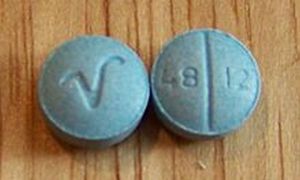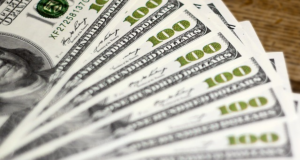“The sheer audacity of the Teva enterprise is stunning,” said Ministry of Health spokesman Avi Uss.
 Petah Tikva, Israel, March 5 – One of the world’s largest pharmaceutical manufacturers has been caught dealing drugs, Israeli regulatory authorities announced today, and has been doing so in one form or another for more than a hundred years.
Petah Tikva, Israel, March 5 – One of the world’s largest pharmaceutical manufacturers has been caught dealing drugs, Israeli regulatory authorities announced today, and has been doing so in one form or another for more than a hundred years.
An investigation by government officials found that Teva Pharmaceuticals, Ltd., one of the fifteen largest companies in the world that produces medicines and their ingredients, has been a major player in the international drug trade since at least 1982, and has exerted ever-increasing control over the trade, especially in Europe and North America.
Investigators said the evidence was in plain sight all along, and that apparently the company relied on its nonchalant pretense of business as usual to avoid attracting the attention of anti-drug authorities, even openly engaging in litigation with other entities in the international drug market over alleged encroachment on one another’s turf. At its headquarters in this Tel Aviv suburb and at its facility in Jerusalem, Teva has even maintained the official structure and trappings of a typical large corporation, with its equity traded in such prestigious forums as the New York Stock Exchange – when in fact the raison d’être of the company was and is to do one thing: sell drugs.
“The sheer audacity of the Teva enterprise is stunning,” said Ministry of Health spokesman Avi Uss. “Here we have an ostensibly respectable company using its clout in the pharmaceutical manufacturing industry to sell drugs – including some very dangerous drugs known for their propensity to be abused.” He specifically cited Adderall, Codeine, and Oxycodone, the latter two narcotics with powerful addictive properties, related to heroin.
“Teva’s approach is sophisticated in the extreme, more like an international conglomerate than the international drug kingpin that it is,” continued Uss. “Where it sees a market opportunity for a new dangerous drug to peddle, Teva takes the initiative and starts aggressively pushing it. But most of the time it finds a cheaper, better way to produce a familiar drug, and uses that economic leverage to muscle in on the drug trade across Europe, the Americas, and, increasingly, Asia.”
So effective have Teva’s methods been that the company has bought out European competitors repeatedly over the last several decades, a far cry from the relatively small-time beginnings it had under previous aliases a century ago, peddling simpler drugs on a local basis. Few, if any, of these takeovers of lucrative drug territory have involved outright violence, a fact that has added to the “legitimate business” veneer the operation enjoys. In fact the US Food and Drug Administration itself certified in 1982 that a Teva facility in Israel met its rigorous standards – “and what official in his right mind would suspect a company with such a prestigious certificate?” intoned Uss. “It was the perfect conspiracy.”




